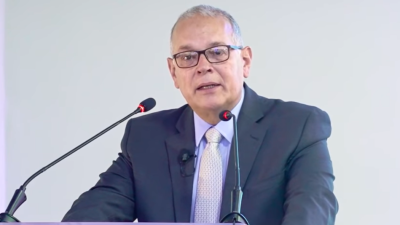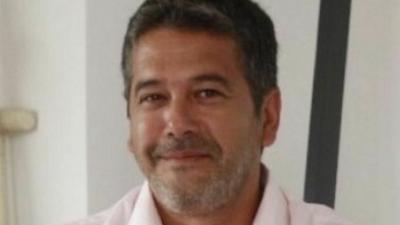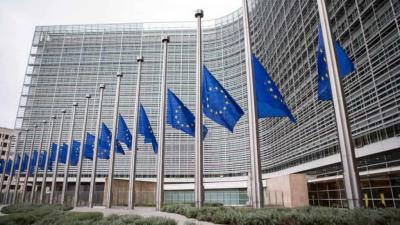If you can convince a person that a urinal is a work of art, you can also convince him that there are a hundred genres.
Interview with Alejandro Peña Esclusa, engineer, writer, analyst and political consultant. A pioneer of the first protests in his country against the Chavista regime, he was imprisoned for a year in El Helicoide (a prison notorious for its torture) and is now a political exile. An expert on the Sao Paulo Forum and the influence of cultural Marxism, he is the author of several books on these subjects. We talk about his latest book: “Classical Art and Cultural Marxism”.
Alvaro Peñas: You have just published a new book. It is not the first one on cultural Marxism, but in this book you start from a different approach.
Alejandro Peña Esclusa: That’s right, and I am delighted with this work, which has already been published in Spanish, English, will soon be published in Portuguese, and next week I will present it in Hungary. There are many denunciations of progressivism, also known as cultural Marxism or Wokism, but my contribution is not only aimed at combating it, but also at offering an alternative. It is not enough to say what cultural Marxism is and say no to gender ideology, multiculturalism or indigenism, but what is the cultural offer of the Right? That’s what he has put forward in this book, as well as proposing policies to carry out this cultural proposal. As soon as the Left comes to power, it floods everything with its cultural Marxism, with books and study programmes. But not the Right, because it lacked a cultural project and was only concerned with the economy and infrastructure. It is time for that to change.
To this end, you propose a return to classical art and music, to the best that the West has produced.
Yes, because before a student finishes studying, it is necessary to learn about what happened in the past, about the masters and founders of the subject. The new artists have to base their future by studying well the classical authors and create, with the same values, new plays, sculptures, paintings, buildings, etc. Classical culture has values. The first is that God exists; second, man is made in his image and likeness and is therefore not an intelligent animal, but a being with an immortal soul; third, there are immutable and eternal universal truths, i.e. truths that apply in all ages and in all societies, and which do not change. Truths which, as Cicero said, are inscribed in the human soul.
These values are imbued in classical art, and this must be emphasised because progressivism starts from anti-values that are exactly the opposite: God does not exist, human beings are intelligent animals without immortal souls, and truths do not exist, but are relative. On the basis of these anti-values, which are also false, an ideological edifice is constructed, the top floors of which are gender ideology and other current aberrations. The damage and confusion caused by these anti-values are so great that they have flooded society with pessimism and we see how people no longer want to have children or how young people fear climate catastrophe and only live in the present. We have lost the joy of that optimism, that beauty, that hope for the future that existed before. My proposal is that all this confusion and many of the problems that humanity suffers are the product of cultural Marxism, and to counteract it we must return to the classical artists.
The art of a civilisation is said to be proof of its achievements. Anything is now considered a work of art, as long as someone perceives it that way. This is pure and simple Wokism.
Of course, and it must be emphasised that all this is a deliberate project of the Left. Although there were different initiatives to demolish Christian and Western values, starting with Gramsci, the most powerful school of thought was the Frankfurt school. From that school, Walter Benjamin and Theodore Adorno realise that art is a fundamental tool to destroy Western values, because art, as Frederick Schiller says, reaches people’s hearts more easily through emotion, which makes it a tool of indoctrination for good or evil.
Adorno, in his book on the theories of new music, says that Arnold Schoenberg’s atonal music is comparable to Beethoven’s. One only has to listen to Schoenberg to see that there is no rhythm, no harmony, no beauty, and no comparison with Beethoven. From Schoenberg a school was created from which musicians and architects emerged who developed an irrational art. One of the clearest examples of this art is Marcel Duchamp's “urinal”. It is a toilet urinal, nothing more and nothing less, which is considered by 500 artists to be the most important work of the last century. This ugliness is a tool for degrading values and instilling pessimism and irrationality in society, because if you can convince a person that a urinal is a work of art, you can also convince him that there are a hundred genres. If art loses coherence and becomes irrational, so does philosophical thought.
If everything is art, art becomes meaningless.
Of course, but in classical times that was not the case. Renaissance men were scientists and artists, and a man like Brunelleschi took 16 years to build the dome of Florence cathedral, or Michelangelo’s works also took years. There was a coherence, a goal, a plan, and all this was linked to values. The literature of Cervantes or Dante expressed that God exists, that man is made in his image and likeness, and that there is good and evil. We must take up the classics, whether it be Classicism, the Spanish Golden Age or the Italian Cinquecento, study them, teach them to young people, and from there make policies to promote this artistic expression that had values.
In Hungary, and also in Poland, buildings have been rehabilitated from a sadly Soviet style to a classical style. This creates much more pleasant cities to live in, is that what you propose in your book in all artistic areas?
There was a time when beauty, goodness and truth were manifestations of the same thing. Beauty is a tool to exalt man and has certain parameters, such as harmony or rhythm. It must be our tool to combat cultural Marxism, because beauty makes man experience the sublime, the divine. In the face of anti-values, beauty, love, goodness and truth must be set against them, and classical art unites these four factors. In my book I go through the different manifestations of classical art, starting with Schiller’s definition of what beauty is, continuing with Dante’s Divine Comedy, which is a moral programme for human beings, and then I deal with literature and theatre, Shakespeare and Cervantes. Also music, Mozart’s Requiem, Verdi’s opera “Nabucco” and the only opera Beethoven wrote, “Fidelio”. And, of course, painting, “The School of Athens” by Raphael Sanzio, with a final chapter dedicated to Brunelleschi and the largest masonry dome in the world. After this tour, I summarise that each of these works has the values mentioned above, and from which all the others derive, such as the value of life or freedom. In the face of progressivism, we offer this treasure that we have forgotten in our Western civilisation.
To the point that we have forgotten the difference between good and evil. Can art put an end to the moral rot that is eating away at the West?
Yes, I am convinced of it, because classical art is an aid to morality, a tool for Christian morality to remain intact. Classical art is a way of evangelising through beauty.
I hope that right-wing governments will pick up the gauntlet and start making cultural policies, and that, instead of indoctrinating young people with sex as the Left does, they will teach beauty, the difference between good and evil, and that when they become adults they cannot be manipulated by the corruption of cultural Marxism.
Read also
That Wonderful Feeling of Normality
The Mathias Corvinus Collegium held the MCC Feszt from 27-29 July, an event that in its third edition brought together thousands of people – more than 47,000 as compared to the 10,000 who had attended it the first time in Esztergom.
Álvaro Peñas
Nacho Montes de Oca: “The best way to disarm the Russian propaganda is to go back to the basic point, which are values”
Nacho Montes de Oca is an Argentinean writer and journalist, known for his books of essays dedicated to historical research and analysis of wars and other contemporary conflicts.
Álvaro Peñas
Country Report: Spain & Portugal, March 2023
The political news in Spain in March was marked, much to the chagrin of the mainstream media, by the motion of censure presented by VOX against Pedro Sánchez’s government.
Álvaro Peñas
Trump puts Europe in front of the mirror
Donald Trump’s victory has created a sense of uncertainty among many European governments, who fear a US retreat from Europe and what that would mean for the defence of the Old Continent.












Comments (0)